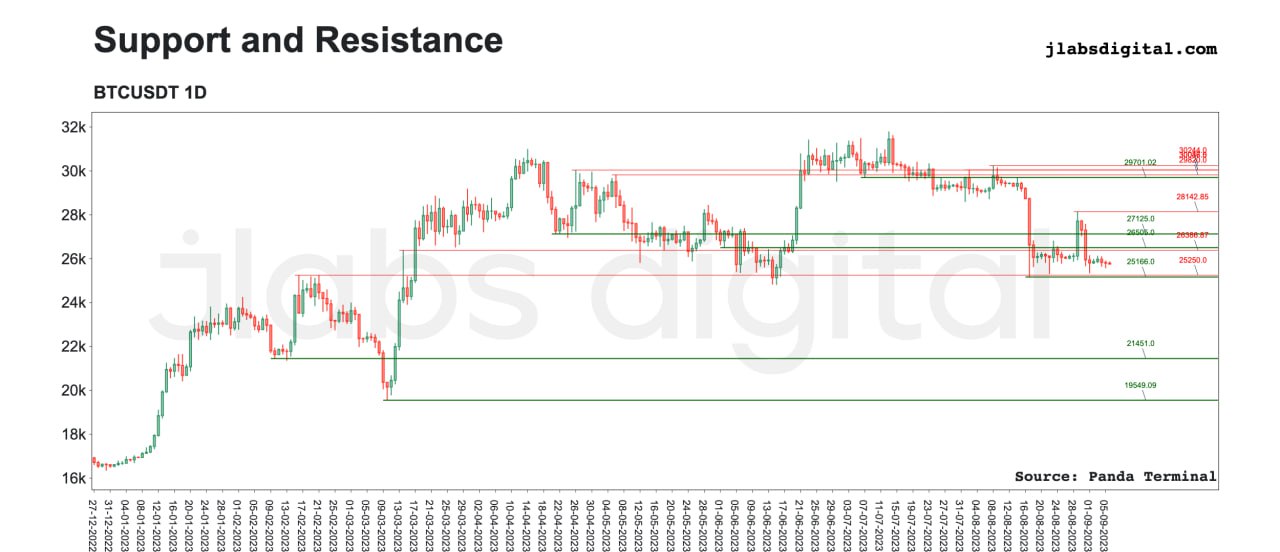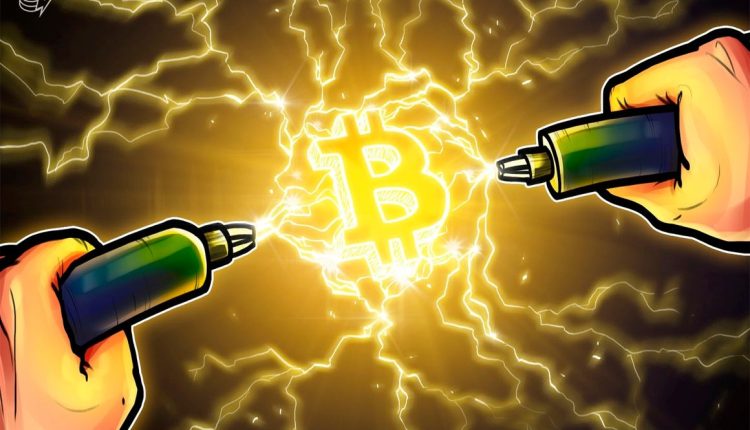Bitcoin’s price is trading in a frustratingly tight range between $25,500 and $26,500, leaving traders unsure of the next direction that the asset could take.
However, Charles Edwards, founder of Capriole Investments, believes that Bitcoin’s (BTC) current price presents a low-risk long-term buying opportunity. Edwards’ view is based on Bitcoin’s production cost and energy value.
Capriole Investments energy value theory gives a fair value price of $47,200, and Edwards reiterated his bullish stance by saying that Bitcoin’s production cost gives a floor price estimation of around $23,000 with a 100% hit ratio.
The trade has a risk-reward ratio of 1:5, with the potential for even higher price targets, but Edwards added it is based on the assumption that the rally price “would stop at fair value, which it never has.”
My favorite Bitcoin chart right now. The relative distance between Bitcoin’s price, the historical price floor (Bitcoin Electrical Cost) and fair value (Bitcoin Energy Value). That’s a 5:1 risk-reward assuming no-hype and that price would stop at fair value, which it never has. pic.twitter.com/J2yuGcNX9q
— Charles Edwards (@caprioleio) September 7, 2023
Bullish energy value theory
Edwards proposed Bitcoin’s energy value theory in December 2019. According to the theory, the fair value of Bitcoin can be estimated by the amount of energy it takes to produce it.
The model assumes that the more work that has been put into something, the more valuable it is.
In 2023, the amount of energy spent in Bitcoin mining has been on the rise as mining companies increased their capacity and share of hash rate with the installation of new ASICs and by preparing for the halving in April 2024.
According to Edwards, the Bitcoin energy value reflects its fair value.
Bitcoin’s energy value has shown a strong correlation with Bitcoin’s spot price and this suggests that the theory is at least somewhat valid. However, there are some caveats to the theory.
One limitation is that Bitcoin’s energy value is not always accurate. This is because the mining energy efficiency can vary over time.
Related: Cambridge Bitcoin Electricity Consumption Index updated to reflect hardware distribution and hash rate increases
Additionally, the theory does not take into account other factors that can affect the price of Bitcoin, such as the market’s current demand and supply and the steps taken by miners ahead of the halving next year.
Bitcoin looks primed for further downside
Bitcoin’s spot liquidity data on Binance indicates that buyers are looking at the $24,600 level for support. However, the bullish momentum appears to be fading as most traders are crowding around the yearly low levels and hoping that these hold.
The liquidation levels of futures orders from CoinGlass show that buyers are expecting downside to $24,600, with smaller liquidations extending toward $23,000.
Notably, the price range between $25,000 and $25,500 has the most leveraged orders in significantly high volumes, making them hot targets for traders.
Should the price drop down to the $23,000 level, the buyer’s conviction will be tested. A drop below $23,000 would target the $21,451 and $19,549 levels from 2022.

This article does not contain investment advice or recommendations. Every investment and trading move involves risk, and readers should conduct their own research when making a decision.
Read the full article here

